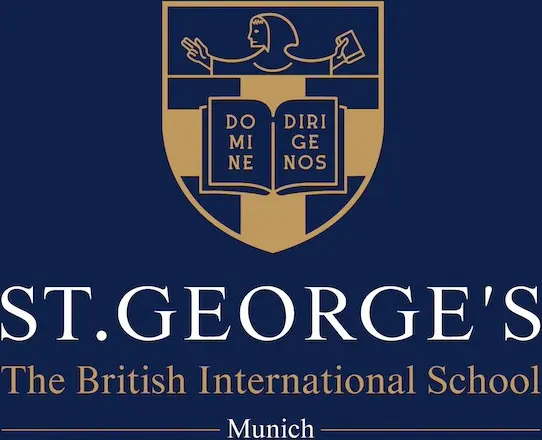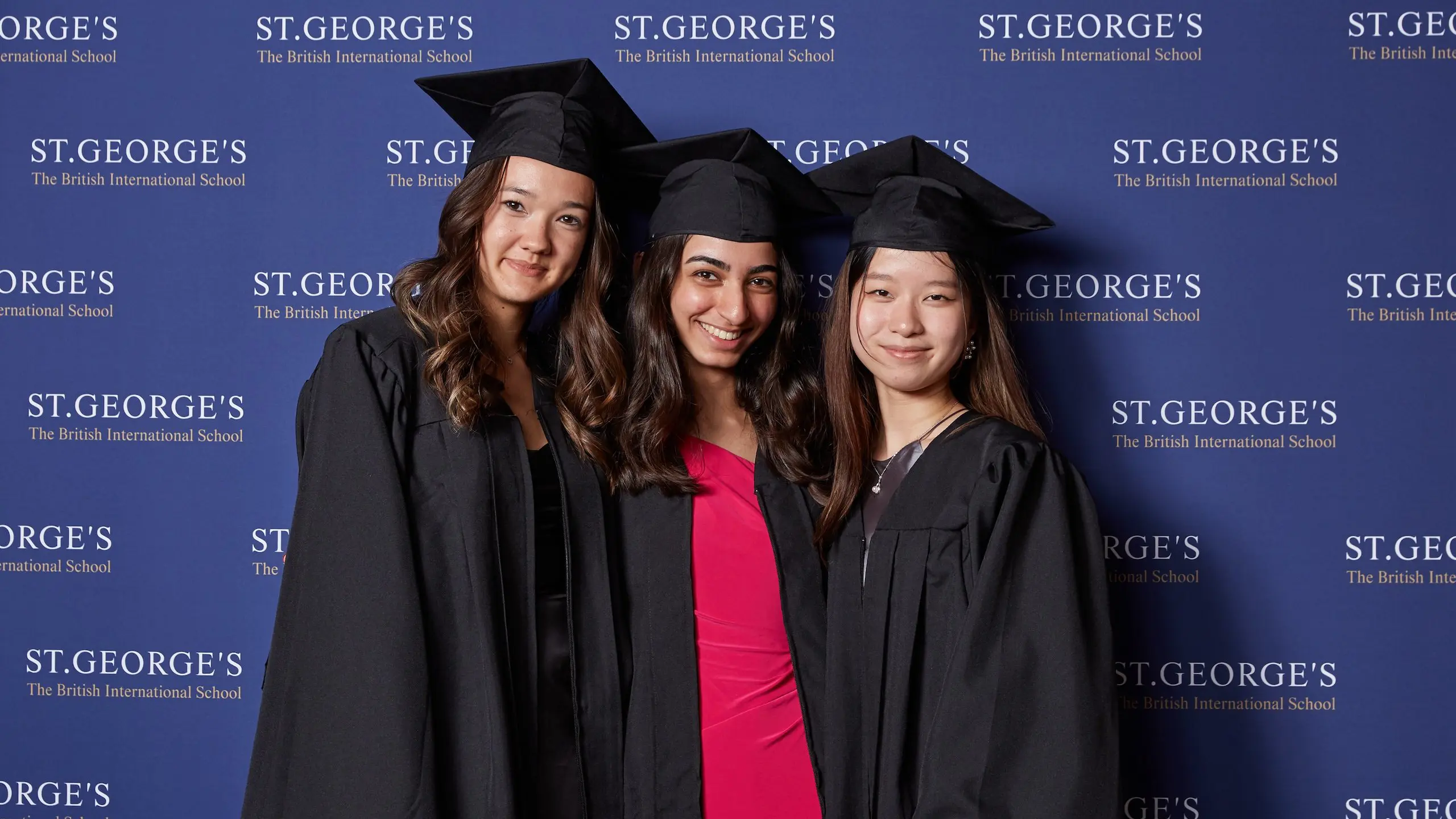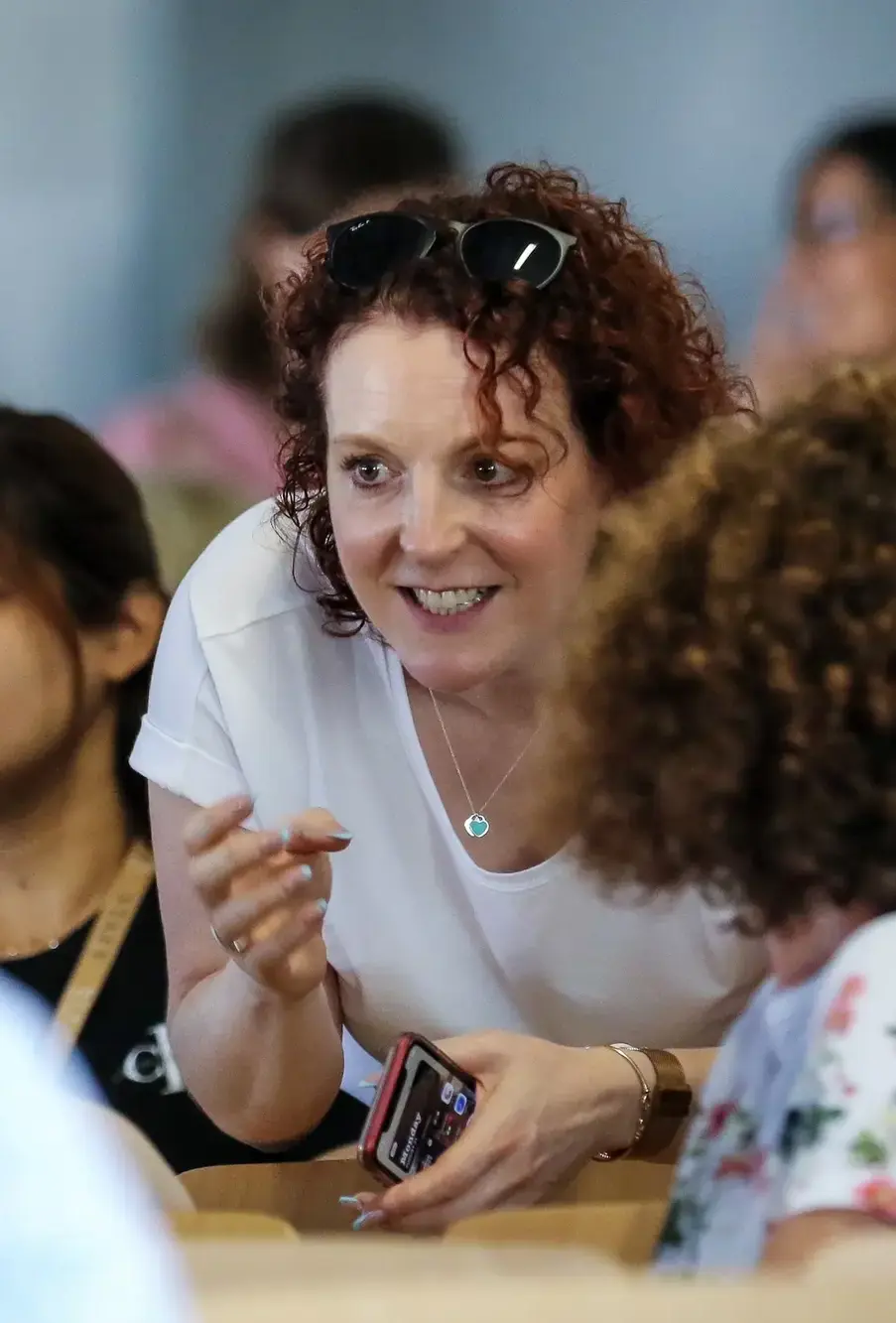Global perspectives.
As a globally recognised leader in educational programmes, the International Baccalaureate, or IB, offers a rigorous and holistic curriculum designed to cultivate well-rounded, inquisitive, and compassionate learners.
We are proud to be an IB World School, committed to nurturing the talents and potential of our students within an inclusive and diverse learning community.
Through the IB framework, our students are encouraged to develop critical thinking skills, international mindedness, and a deep appreciation for different cultures and perspectives. Our dedicated teachers are experienced in guiding students through the IB journey, fostering a supportive environment where academic excellence, creativity, and personal growth are valued.
At St.George’s we offer two IB programmes, the Diploma Programme (DP) and the Career-related Programme (CP). Each IB programme provides a holistic and developmentally appropriate curriculum that is broad, balanced, conceptual and connected. An excellent pathway that prepares students aged 16-18 for the next steps, whatever they may be.
| The Diploma Programme (DP) |
|---|
|
The Diploma Programme (DP) serves as a gateway to esteemed universities worldwide, including renowned institutions such as Oxford University, Yale University, Stanford University, University of Paris (Sorbonne), and Princeton University. Comprising six distinct subject areas and three distinctive core elements exclusive to the IB, the DP offers a comprehensive and internationally recognised qualification that prepares students for success in higher education and beyond. The six subject groups:
Students must choose one subject from each topic area. Each subject can be studied at Higher Level (HL) or Standard Level (SL), and students must take 3 subjects at each level. The three core elements:
|
| The Career-related Programme (CP) |
|
The Career-related Programme (CP) integrates the core values of the IB into a specialised curriculum tailored for students pursuing career-focused education. This innovative programme opens pathways to higher education, apprenticeships, or employment opportunities. Comprising a BTEC in Enterprise and Entrepreneurship, two IB Diploma courses, and the CP Core, students benefit from a comprehensive blend of academic rigour and practical skill development, equipping them for success in their chosen career paths. The Business and Technology Education Council, or BTEC, offers students a unique opportunity to delve into the intricacies of business operations while simultaneously developing their own entrepreneurial ventures. Unlike the Diploma subjects, which are evaluated through a combination of coursework and final exams, the BTEC assessment is entirely coursework-based. This hands-on approach empowers students to apply theoretical knowledge directly to real-world scenarios, fostering practical skills and entrepreneurial acumen essential for success in today's dynamic business landscape. St.George’s Schools collaborate with the Chartered Management Institute (CMI) and align their BTEC programmes with industry standards and best practices. This cooperation helps bridge the gap between education and industry, ensuring that we offer relevant, up-to-date education that meets the needs of the modern workplace. Through the CMI accreditation and membership, we offer significant benefits for both students and teachers. For our students, this means gaining recognised qualifications and accessing industry-relevant resources that not only support their professional growth but also boost their career prospects and practical skills. For our teachers, it provides essential professional development tools, updated management frameworks, and valuable networking opportunities, enriching their teaching practice and ensuring their expertise stays current with industry standards. This dual support enhances the overall quality of education, preparing students for successful careers while empowering teachers to deliver exceptional management education. The CP Core refers to a set of components which are designed to provide students with a holistic and integrated educational experience that combines academic study with real-world skills and personal development. It consists of four elements:
Together, these components of the CP Core enhance students' academic learning with practical experiences, self-reflection, and community engagement, preparing them for success in both their future careers and personal lives. |
IB Diploma recognition
The IB Diploma is recognised in all German Bundesländer as equivalent to the Abitur. It is recognised by all German universities, including the most prestigious (e.g. LMU Munich, Heidelberg and Berlin Humboldt.)
For IB recognition in Germany every student needs to study six subjects:
- An advanced language that is not their mother tongue (normally English)
- A further language at advanced or intermediate level (German, French, Spanish)
- Biology or Chemistry or Physics
- Mathematics
- History or Geography or Economics or Global Politics or Business Management
- An additional approved subject (incl. Visual Arts, Music, Sport Science, Theatre Studies, a beginner language, or the subjects mentioned above)
Three subjects should be studied at standard level, three at higher level. At least one of Biology, Chemistry, Physics, Mathematics or a Language subject at higher level.
IB Diploma grades needed
The diploma is achieved with at least 24 out of 45 points.
In addition, each student will need to achieve a minimum grade in each subject. Each subject is graded from 1-7, with 7 being the best grade. They will need to achieve at least 4 points in each subject. One grade 3 can be balanced out by a grade 5 in a different subject at the same level.
For a course with a minimum grade requirement, the IB grade converts to an Abitur grade as follows:

If the university has a minimum grade requirement (‘Numerus Clausus’), the student must achieve at least this minimum grade. Some universities will admit students who do not meet the minimum grade requirement by looking at their precise subjects and grades. It is therefore always sensible to take IB subjects relevant to the intended field of study.
For further information see the Kulturministerkonferenz website:
Results
| IB Diploma Programme (DP) results |
|---|
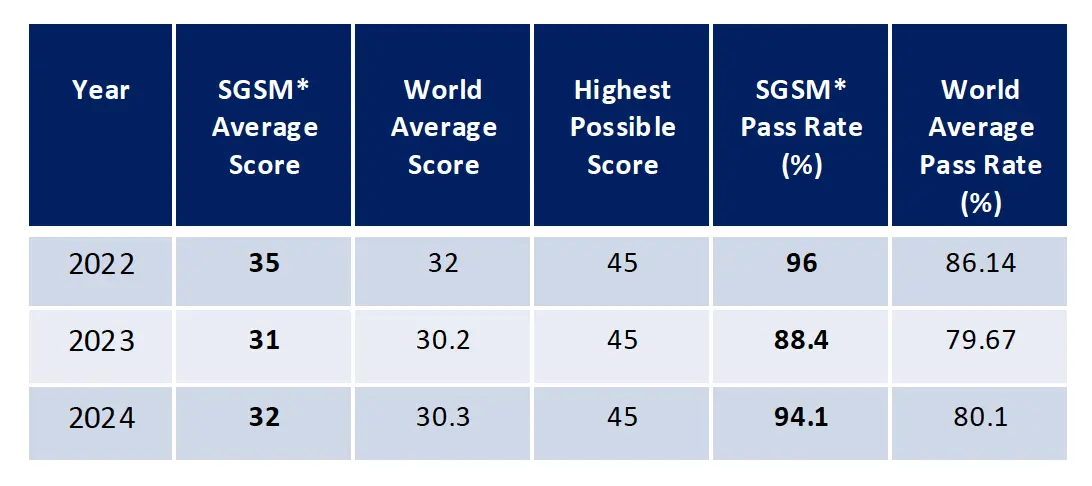 |
| IB Diploma Programme (DP) subject results |
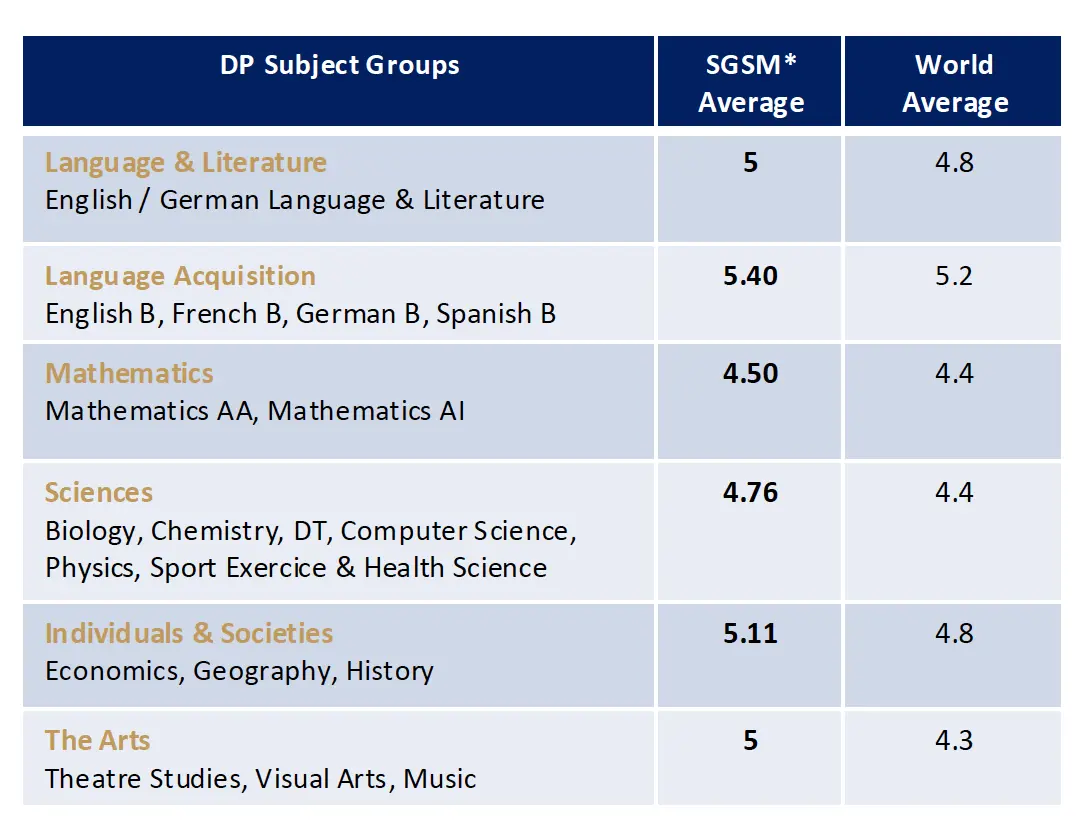 |
| IB Career-related Programme (CP) results |
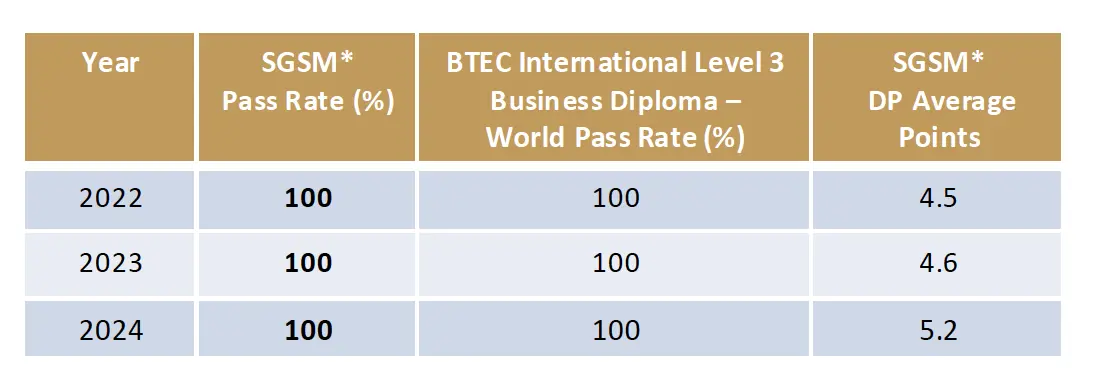 |
*SGSM: St. George's School Munich
St.George's
unique education model
As an educational organisation we are pioneering in four key areas which are the pillars supporting our work as educators and employers, and informing our wider economic, social, and environmental responsibilities.
